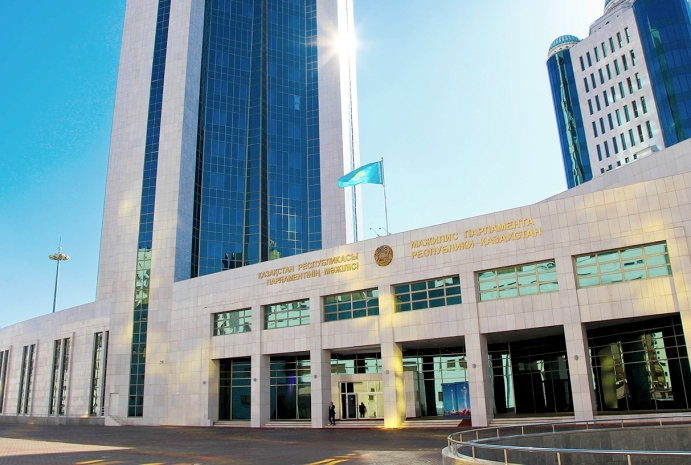NUR-SULTAN – The Majilis (lower chamber of Parliament) approved the draft law of the 2020-2022 national budget at its Oct. 23 plenary session.
The main principle is to consistently implement the course and medium-term tasks set for the nation as a part of the Strategic Development Plan through 2025, said First Deputy Prime Minister and Minister of Finance Alikhan Smailov in presenting the bill to the members of the Majilis.
During the discussion, the Majilis introduced amendments to the bill and revised the draft budget parametres. It determined 2020 revenue at 11.3 trillion tenge (US$2.9 billion) with a 108.3 billion tenge (US$278 million) increase compared to the previous draft. The 2020 budget has a 1.6 trillion tenge (US $4.1 billion) deficit, which will be reduced during the year to 890 billion tenge (US$2.3 billion).
“This level ensures keeping the debt at a safe level,” Smailov said.
Budget expenditures for the three-year period, compared with the figures initially introduced to the Majilis, increased by 329 billion tenge (US$846 million), with 172 billion tenge (US$442 million) allocated for 2020. As a result, expenses totalled 12.9 trillion tenge (US$33 billion).
Social sector expenses for 2020-2022 will be 20 trillion tenge (US$51.4 billion), with six trillion tenge (US$15.4 billion), or 46.4 percent of the total, designated for 2020. By 2022, the figure will be 53.8 percent. The main share of social expenses falls on social security and social assistance provisions for citizens.
“In the period planned, 11 trillion tenge (US$28.3 billion) is planned for this direction, of which 3.4 trillion tenge (US$8.7 billion) is for 2020. Expenditures on the healthcare system in 2020-2022 will be 4.7 trillion tenge (US$12 billion); 1.5 trillion tenge (US$3.9 billion) will be for 2020,” said Smailov.
He added the growth is mainly associated with the transition to the Compulsory Social Health Insurance and increase in medical workers’ salaries as part of the guaranteed volume of medical care.
In addition, to implement First President Nursultan Nazarbayev’s instructions, the ministry developed a draft law “On the teachers’ status.” The budget provides 2.2 trillion tenge (US$5.7 billion) for its execution, including 390 billion tenge (US$1 billion) for 2020.
The costs of supporting and developing the economy’s real sector, associated with ensuring the economic sectors’ competitiveness, technological renewal and digitising, will be 4.7 trillion tenge (US$12 billion) in the medium term, with two trillion tenge (US$5.1 billion) designated for 2020.
The ministry is providing one trillion tenge (US$2.6 billion) for a three-year period of agricultural sector development, allocating 355.2 billion tenge (US$911 million) for 2020. The Nurly Zher Housing Construction Programme will receive 368 billion tenge (US$945 million), with 254 billion tenge (US$652 million) in 2020.
The ministry plans to allocate 1.4 trillion tenge (US $3.6 billion) to develop transport infrastructure in 2020-2022, of which 545 billion tenge (US$1.4 billion) is for 2020. It also envisions 4.3 trillion tenge (US $11 billion), with 1.5 trillion tenge (US $3.9 billion) in 2020, for defence capability and state security, protecting law and order, maintaining internal stability ad ensuring the population’s protection and sustainability.
The budget will provide 8.5 trillion tenge (US $21.8 billion) to implement instructions voiced by Nazarbayev in his annual address.

